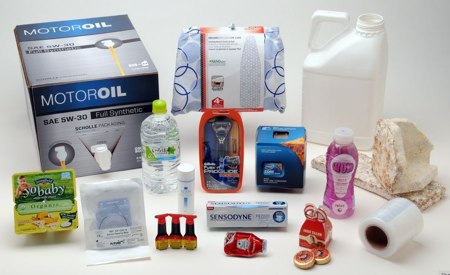 Winners of the 23rd DuPont Awards for Packaging Innovation, represent breakthrough developments in sustainability from brand giants like Coca Cola, Intel and Heinz.
Winners of the 23rd DuPont Awards for Packaging Innovation, represent breakthrough developments in sustainability from brand giants like Coca Cola, Intel and Heinz.
“Sustainability considerations are driving innovation” said Shanna Moore, a director of DuPont Packaging & Industrial Polymers. “The innovations stem from use of organic or renewably sourced materials to the relentless drive to reduce waste and weight.”
The independent jury panel, which evaluated more than 200 entries, said nearly all of the winning innovations related to reducing waste in the system.
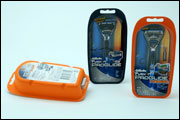
Some highlights from the 2011 awards
— The Gillette Fusion ProGlide moved away from a clamshell approach and opted instead for a pulp tray made of renewable bamboo and bulrush fiber-based material, reducing both cost and material weight. Additionally it is much easier to open, making it popular with consumers.
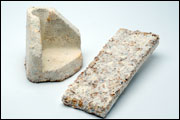 — Ecovative looked to nature and found an innovative, cost-effective, all-natural solution for protecting electronics like TVs. As a replacement for styrofoam, which doesn’t break down in landfills, EcoCradle™ is grown from mycelium mushrooms and regionally sourced agricultural byproducts, like cotton burrs and oat hulls.
— Ecovative looked to nature and found an innovative, cost-effective, all-natural solution for protecting electronics like TVs. As a replacement for styrofoam, which doesn’t break down in landfills, EcoCradle™ is grown from mycelium mushrooms and regionally sourced agricultural byproducts, like cotton burrs and oat hulls.
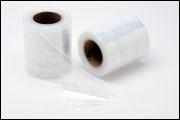
— Apeldoorn Flexible Packaging produces a stretch film for pallets in transport with optimal properties for the beverage industry that uses 30 percent less material per pallet and reduces damage products during transportation by 80 percent.
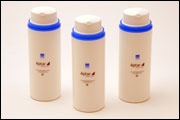 — APTAR developed a new design for airless cosmetic dispensers that redesigned the pump ensuring that the entire container is recyclable. The first airless dispenser to be completely made of plastics while also offering a high level of product protection, there is no gasket or metal spring.
— APTAR developed a new design for airless cosmetic dispensers that redesigned the pump ensuring that the entire container is recyclable. The first airless dispenser to be completely made of plastics while also offering a high level of product protection, there is no gasket or metal spring.
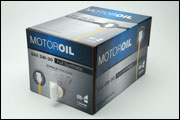
— A motor oil “bag in box” for automotive fluids, by Scholle Packaging and Shell Global Lubricants, removes 24 one-liter bottles from the waste stream, while saving suppliers money. Overall, petroleum-based resin usage in the packaging is reduced by nearly 90 percent compared to rigid one-liter bottles. During shipping, greenhouse gas emissions are overall lower due to more-efficient cube packages.
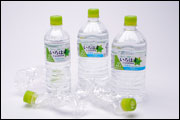
— The Coca-Cola Company in Japan created a plant-based bottle for its mineral water that reduced bottle weight by 40%, compared to the previous PET bottle. Once consumed, the bottle is easily twisted, which crushes the bottle to a very small size.
(See all the winners at Dewita’s Business blog)



















